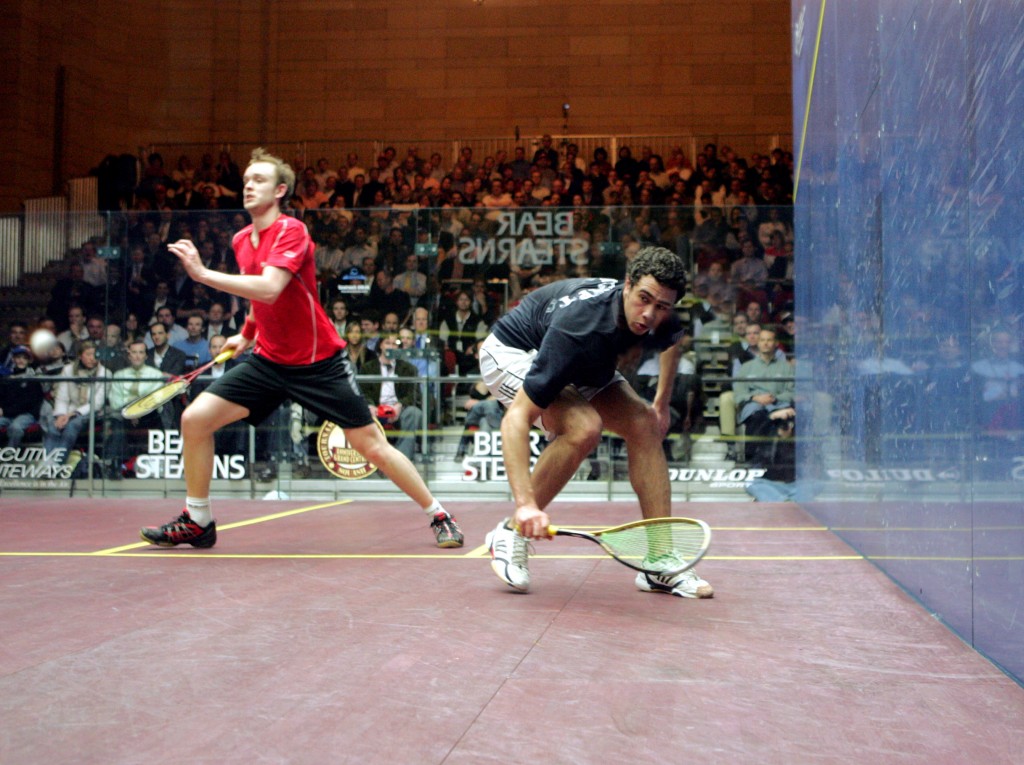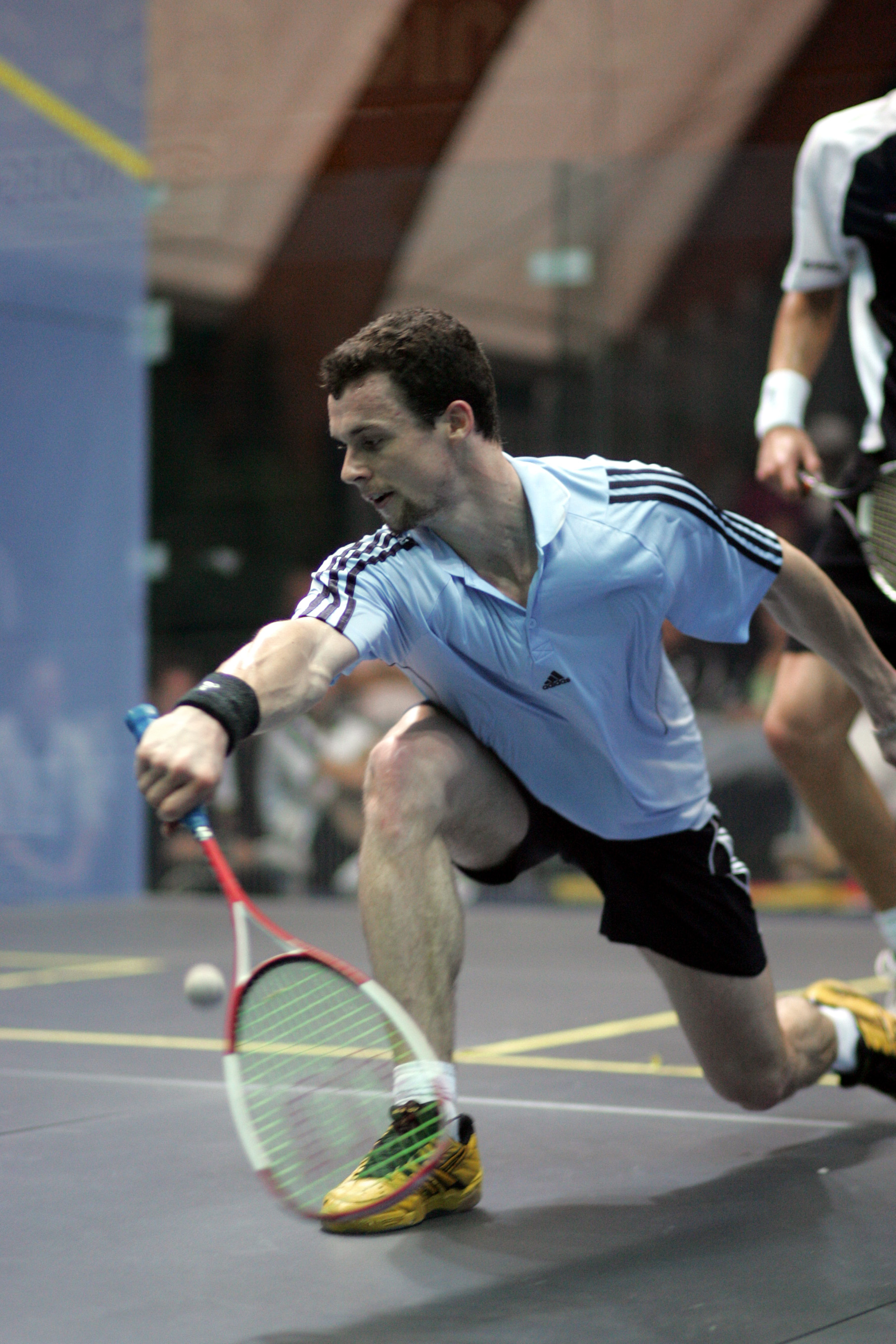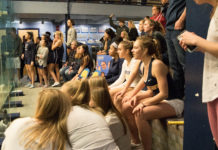By Richard Millman, Director of Squash, Kiawah Island Club
Last month, we kicked two pieces of squash lore in the teeth—“Get back to the T” and “Keep your racquet up.” Okay then. On to number three. But surely, not: “Keep your eye on the ball?” This last bastion of traditional wisdom must be retained, right?
Polish up your best boot and kick it out forever!

Why? For the same reason as numbers one and two—it is incomplete and therefore actually does more harm than good. For example: Watch any pro squash match and watch the players’ eyes. Do they watch the ball the entire time? Absolutely not. Sure they watch when the opponent is about to hit the ball—to see where it is going to go—but the rest of the time they are looking in all sorts of other places. In fact if you don’t learn to look away from the ball, for many reasons, it’s unlikely that you’ll develop into an advanced player.
For example, if a player wants to retrieve the ball from the back corner, having watched the ball travel from the front wall and having picked up the speed, direction and trajectory of the ball, they must then look briefly away from the ball to set up in advance of the ball’s arrival. If you don’t look away ahead of time, you can never create enough time to get ahead, and you will always be following (you know, like the runner who came second followed the runner that came first) the ball.
But, you ask, “How do I keep track of the ball?” Simple—with your imagination. Having first picked up the speed, direction, etc., you can leave your contact with the ball in the capable hands of your imagination, while you turn away to get ready in advance. Don’t worry—your eyes and your imagination have a big reunion when the ball pops back into view exactly where you expected it. Amazing!
This also happens in several other situations—such as when a player uses deception or when a player needs to hit the ball in the opposite direction to which they are facing.

In all these situations one has to temporarily track the ball with the imagination—the eyes don’t get a look in!
Oh, and a final word on that old chestnut (or perhaps I should say bologna) when a player has gone one way and the ball has gone the other, and they shout, “Watch the ball!” at themselves in indignant irritation. Well, they almost always do watch the ball! The problem is they didn’t move with the ball. Ninety percent of the time they saw it fine, but they had committed themselves in the wrong direction too early. Another example of a commonly, but erroneously, used phrase which misleads the user.
So, there it is. The very foundation of squash, as we know it, rocked to the core!
How we say things—or hear them—can have a monumental effect on our development as players. So next time you start responding to a piece of well-known advice, ask yourself: Do you know why you are doing what you’re doing? Are you sure? Or are you just reacting (you know, responding by following instead of planning ahead proactively)?
Is the advice you are so meekly and willingly accepting, actually directing you away from your purpose instead?
Do you know your purpose, and is what you’re doing taking you evermore towards a thinking game?
Next Month:
Many of you will either know or have heard of Don Mills, one of the most loved and respected professionals in our game and the coach and mentor of more than a generation of skilled and successful squash champions. I was flattered and delighted to receive an email about my articles from Don last month, in the course of which he asked if I would write one about: “The Return of Serve.” It is therefore my pleasure to dedicate my next month’s article to Don and “The Return of Serve.” See you then!





